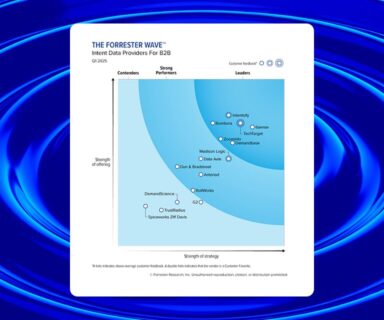As B2B buyers are more digital and self-directed than ever before, sellers need better insights and more meaningful access to the key stakeholders within a buying team. Recognizing this, leading go-to-market (GTM) teams have rushed to bring precise person-level behavioral insight – purchase intent data – to their teams.
And yet, without a clear path towards intent data adoption, businesses can put themselves at serious risk of further GTM performance declines. In this short e-book, you’ll learn:
- Three area sales organizations should focus on to drive faster intent data adoption.
- How to empower your sellers to use a high-quality source of purchase intent data.
- Tips from clients that have successfully integrated intent data into their sales teams.




